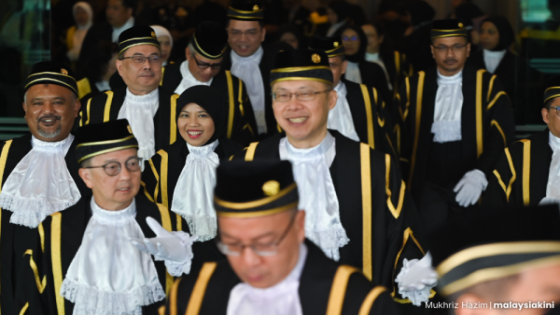The current Malaysian government, led by Prime Minister Anwar Ibrahim, is facing criticism regarding its commitment to judicial independence. This concern was highlighted on January 23, 2025, when nine former presidents of the Malaysian Bar Association stated that the current administration is perceived as less supportive of judicial freedom compared to its predecessors.
- Anwar Ibrahim's government criticized for judicial freedom.
- Former presidents compare current and past administrations.
- Judicial appointments under scrutiny by Chief Justice.
- Warning of authoritarianism threatening judicial independence.
- Call to protect constitutional freedoms emphasized.
- Importance of legal community's response highlighted.
Concerns Over Judicial Independence in Malaysia Under Anwar Ibrahim’s Leadership
What does this mean for the future of justice in Malaysia? The recent statements from former Bar Association leaders raise serious questions about the current government’s respect for judicial independence. As the judiciary serves as a crucial check on government power, any perceived erosion of this independence could have far-reaching consequences.
Implications of Judicial Freedom Erosion for Malaysia and Beyond
The erosion of judicial independence in Malaysia could have significant implications, both domestically and internationally. A strong judiciary is vital for upholding the rule of law and protecting citizens’ rights. If the judiciary becomes compromised, it risks becoming a tool for government oppression. This situation is particularly concerning for international observers and investors who value stable legal frameworks.
Key Concerns Raised by Former Bar Leaders
The former presidents of the Malaysian Bar Association have outlined several key issues regarding judicial independence:
- Increased pressure on the judiciary from external forces.
- Perceived lack of respect for judicial autonomy by the current government.
- Historical comparisons to previous administrations that upheld judicial freedom.
- Potential consequences of a weakened judiciary on civil liberties.
The Role of the Judiciary in Protecting Citizens’ Rights
The judiciary serves as a guardian of citizens’ rights, acting as a barrier against government overreach. In countries where authoritarianism rises, the judiciary often becomes the first target. The current concerns in Malaysia echo this global trend, highlighting the need for vigilance in protecting judicial independence.
International Implications of Malaysia’s Judicial Independence Crisis
The situation in Malaysia is not just a local issue; it has international ramifications. A decline in judicial independence could deter foreign investment and affect diplomatic relations. Countries that value human rights and the rule of law will closely monitor Malaysia’s trajectory. How will the international community respond to these developments?
In conclusion, the ongoing discourse surrounding judicial independence in Malaysia under Prime Minister Anwar Ibrahim’s administration is crucial. It highlights the delicate balance between government power and individual rights, a balance that must be maintained for the health of democracy in Malaysia and beyond.

































